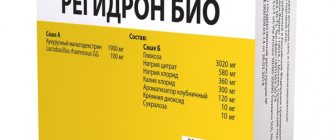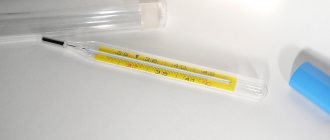Vomiting is a reflex emptying of the stomach through the mouth (or nose). In children, nausea occurs due to food poisoning, infectious diseases, and gallbladder pathologies. Green vomit in a child occurs more often at night. If an acute condition is accompanied by fever, weakness, or poor health, consultation with a pediatrician is necessary.
Causes
The child’s body reacts to many things: intestinal, viral infections (ARVI, influenza), poisoning, whooping cough, bronchitis, tonsillitis, pneumonia, meningitis, surgical diseases (appendicitis, hernia), heat stroke.
There are characteristic symptoms and help for diseases. The life of the child depends on the correct reaction of the parents.
Intestinal infection
Gastrointestinal infections lead to repeated bouts of vomiting, stomach pain, weakness, diarrhea, and loss of appetite. You should call a pediatrician or an ambulance and start fighting dehydration.
Viral and infectious diseases
Flu and similar diseases. Vomiting is often one-time, headache with fever (38 – 39 – 40 degrees), aches in the bones and body. You need to call a doctor at home.
Poisoning of any kind
Accompanied by symptoms: weakness, malaise, lack of appetite, abdominal pain, diarrhea, repeated vomiting. Call a doctor and prevent dehydration from developing.
Diseases with cough
Whooping cough, pneumonia, sore throat, bronchitis, pneumonia. Against the background of coughing attacks, attacks of vomiting are provoked. Sore throat, weakness. You should call a doctor.
Meningitis
A disease accompanied by inflammation of the membranes of the spinal cord or brain. The disease cannot be missed or left unnoticed. The consequences reach the point of failure of parts of the brain.
Symptoms: weakness, photophobia, fever (temperature above 39 degrees), restlessness, refusal to drink and eat, rash, convulsions. Urgently call an ambulance for further medical assistance.
Diseases requiring surgery
Inflammation of the abdominal cavity requiring surgical solution: inflammation of the appendix, hernia. You can recognize it by acute abdominal pain and weakness. It is necessary to call an ambulance - delays are dangerous.
Heatstroke (sunstroke)
“Diseases” of this kind occur with general lethargy, redness, dry skin, severe dizziness, pulse and breathing speed up. Call a doctor, put the patient in a cool place, turn his head to the side.
Brain tumors
Brain tumors can be benign or malignant. This disease can be suspected based on specific symptoms. The child often complains of nausea, vomiting, dizziness and headache . Upon examination, you may notice pallor of the skin and unstable temperature, which at times drops greatly or, conversely, rises. Sometimes fainting occurs and coordination of movements is impaired.
To correctly make a diagnosis, a series of examinations are prescribed, which necessarily include x-rays and tomography. When performing these procedures, you can see not only the location of the tumor, but also identify metastases, if any.
In the early stages, oncological diseases are successfully treated; the main thing is not to miss the first symptoms.
Diarrhea
A special symptom is the presence or absence of diarrhea with vomiting.
Loose stool in a child is a sure sign of poisoning or intestinal infection. The body tries to remove dangerous substances and toxins in order to function without harm, in a normal state.
Adults immediately call a doctor for immediate assistance to the child. Intoxication leads to sad consequences. Recovery of the body is long and painful.
If there is vomiting without diarrhea, examine the child’s condition. It will help you provide proper medical care at home without causing harm. If there is no diarrhea, the intestines are fine.
Clinical picture of diseases
Diarrhea and fever are accompanied by other symptoms - weakness, lethargy, drowsiness. If an infant falls ill, parents should be alarmed by the refusal to breastfeed. If he is older, irritability, tearfulness, and reluctance to eat will attract attention. Diarrhea and vomiting in a child is a sign that needs to be carefully studied. Before the doctor arrives, parents, in addition to administering first aid, should monitor the frequency of attacks and the color of loose stools.
Note to parents! A particular danger is the presence of blood in the stool. If the bowel movements are red, you need to report your observation to your doctor - it is possible that dysentery has developed.
In the absence of therapeutic action, vomiting and diarrhea in a child cause dehydration of the body - the patient’s facial features become sharper, body weight is reduced due to lost (and not replenished) fluid. Hence weakness, exhaustion, vitamin deficiency (since nutrients are evacuated from the body during diarrhea).
Call a doctor
When vomiting is one-time, the temperature does not rise above 37, there is no reason to call an ambulance. Adults monitor the baby's condition. The child is cheerful, cheerful, has not lost his appetite - there is no reason to panic. In the first few months of life, vomiting in a baby may be a sign of inadequate development of the gastrointestinal tract, a peculiar adaptation of the body to new food. Eating large amounts of food, motion sickness, and air getting in with food provokes vomiting.
Symptoms that require calling a doctor:
- repeated vomiting;
- dehydration, inability to drink water due to vomiting;
- the appearance of other symptoms at a temperature above 39;
- lethargy, weakness, deterioration;
- the presence of blood with vomiting, feces;
The child’s life depends on the speed of the parents’ reaction.
Stomach diseases
Gastritis or stomach ulcers can lead to a decrease in body temperature and vomiting. This happens especially often in the acute stage. Treatment of all these diseases must be comprehensive. The treatment always includes antibiotics, antispasmodics, drugs that reduce the acidity of gastric juice, decoctions of medicinal herbs and vitamin complexes. In case of exacerbation, the child is treated in a hospital setting; in the remission stage, it is permissible to take medications prescribed by the doctor at home.
Diet plays an important role in the treatment of these diseases. A sick child needs to be provided with meals that include the following products:
- viscous porridge with water or skim milk;
- baked apples and ripe bananas;
- boiled fish and meat;
- boiled eggs;
- biscuits;
- vegetable soups;
- jelly.
All food for a sick child is boiled or steamed . In exceptional cases, you can bake meat and vegetables in the oven. A minimum of fat is used for cooking so as not to burden the digestive system and liver.
Help at home
Adults need to calm down and reassure children. Mom is nervous, crying, hysterical - the baby will not give in. The baby's tears and tantrums will not help provide assistance and will worsen the condition.
You cannot leave a child unattended after vomiting - the urge will repeat, the baby will simply choke on the vomit and suffocate. It is better to turn the child's head to the side on the pillow. When you urge again, this will protect you from side effects.
Your child needs to drink to avoid dehydration. But not too much - it will provoke a new urge. Small portions (5 teaspoons for 10-15 minutes) of water will help restore the water-salt composition of the body and maintain strength for the fight. There are special solutions with minerals in the pharmacy. It is not recommended to give juice - it causes vomiting.
Do not feed the child until a diagnosis is made and medical care is provided. Parents should not invent treatment on their own.
Folk remedies
In addition to medications, folk remedies are used to eliminate symptoms in a child. At home, herbal infusions are used to reduce the temperature and normalize the functioning of the gastrointestinal tract. For this, traditional medicine recipes are used:
- Peppermint. Place 1 tablespoon of mint in a thermos and pour 250 ml of boiling water into it, close and let it brew for 2-3 hours. Give 1 tablespoon of tincture after nausea occurs.
- Melissa. Brew 1 tablespoon of crushed and dried lemon balm leaves in 250 ml of boiling water and leave for 3 hours. Give the finished mixture to the baby 1 teaspoon 3-4 times a day.
- Dill decoction. Brew 1 teaspoon of dill seeds in 250 ml of boiling water, cook for 5 minutes and leave until cool. Give the finished product 3 teaspoons 3 times a day.
Treatment
Therapy is prescribed by a doctor after a thorough medical examination and diagnosis.
At high temperatures, it is recommended to give the child an antipyretic, agreed with the doctor. Adults should ensure that the temperature does not rise higher than before. When you manage to reduce it, avoid dehydration.
Doctor Komarovsky speaks
In young children, vomiting and fever are accompanied by diarrhea. Through the mouth, many harmful bacteria enter the child’s body, contributing to the development of intestinal infection. This is a popular cause of this type of illness. The age of a person does not matter. There are no vaccinations or insurance against it.
The concept of intestinal infection means the presence of staphylococcus bacilli, salmonella, dysentery, and typhoid fever. Their presence or absence will be shown by tests prescribed by the doctor.
Actions if a child gets an intestinal infection:
- Think about what you eat. Probably, punishment with poisoning will overtake all members of the feast.
- If there are doubts about the food taken by the child separately (in kindergarten), parents should call their classmates. It will prevent and prevent the risk of developing a massive spread of infection.
- The rest of the family must follow safety precautions. Don't eat from the same bowl, stick to your diet.
- If parents are sure of the diagnosis, do not drink absorbents other than activated carbon. It will absorb toxins and remove them from the body, making work easier. Consumption of large quantities of antidiarrheal and antiemetic drugs carries the risk of increasing the time it takes for the infection to leave the body. Help remove excess: rinse the stomach with plenty of water, a solution of potassium permanganate, give charcoal. Rinse the intestines with an enema.
- Do not forget to replenish fluid in the body with available means.
- Maintain temperature conditions for drinks. Cold water or boiling water will make it difficult to absorb into the blood from the stomach.
- Portions of liquid should be small. It is recommended to drink little and often.
- You should not start eating heavily at the first signs of improvement. This will not restore the body, it will worsen the condition. At the beginning of the recovery process, you can give your child porridge, low-fat chicken broth with bread, crackers. For infants, formula and breastfeeding cannot be canceled; consult a doctor for proper nutrition of the newborn.
- If there are other signs, increased vomiting, lack of urination, the appearance of blood in the vomit or stool, or worsening of the condition, consult a doctor immediately.
If you follow the rules of hygiene and proper care, the patient’s recovery will be painless and quick.
Anemia
A child may have a low fever and vomiting even with a strong decrease in hemoglobin in the blood. This condition may be the result of serious illness or poor nutrition. Children suffering from anemia look pale and weak, and their appetite and general condition are often impaired.
For treatment, iron-containing medications are prescribed and the child’s diet is adjusted. The diet should contain a lot of greens, fruits, vegetables, beef, liver, buckwheat and fish.
If the child's anemia is too severe, a blood transfusion is prescribed.
Vomiting and fever in a teenager
For older children, there is no need to call a doctor every time. Their body develops and becomes like that of an adult. With ordinary poisoning, the body temperature is initially low, and then, when the vomiting has passed, it is completely low. The next day, there is a need to measure in the morning, afternoon, evening and night to monitor your health.
Vomiting may be caused by fever. Especially during puberty, when the body reacts to changes too actively. A systematic slight increase in temperature during this period should not cause panic.
Severe, frequent vomiting after fever gives reason to call a doctor.
Bottom line
Vomiting without a rise in temperature can be a natural cleansing of the body from toxins, or it can indicate a serious illness. If nausea is a consequence of food poisoning, help your baby cleanse the body - you cannot stop the cleansing process. However, vomiting can also be pathological if it becomes a frequent occurrence. In this case, the child must be examined.
Teenage nausea and vomiting stands out. Boys and girls are often subject to psychological crises of personality development against the background of hormonal changes in the body. In this case, the gag reflex becomes an expression of protest against circumstances or parental pressure. But, in any case, if the listed signs appear, it is necessary to exclude the possibility of food poisoning, and only then provide the necessary assistance.











